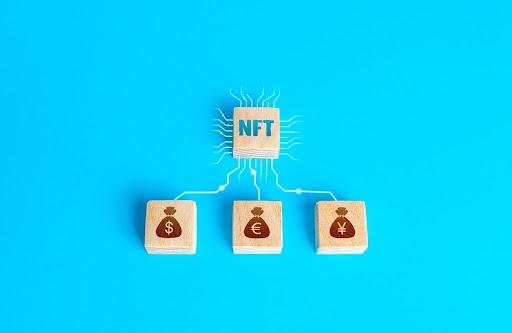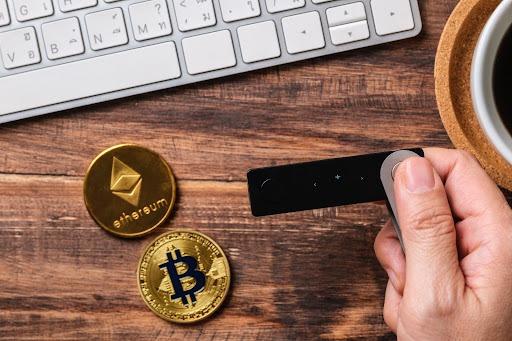Non-fungible tokens (NFTs) have taken the digital world by storm, becoming a widely accepted tool for wealth creation and brand marketing. Major brands across various industries are leveraging NFTs to engage with audiences, create new revenue streams, and innovate their marketing strategies. At L.A. Tech and Media Law Firm, we are at the forefront of this digital revolution, providing expert legal guidance on navigating the complexities of NFTs.
A New Frontier for NFT Brands
What Are NFT Brands?
NFTs, or non-fungible tokens, are unique digital assets verified using blockchain technology. Unlike cryptocurrencies, which are identical and interchangeable, NFTs are distinct and cannot be exchanged on a one-to-one basis. This uniqueness makes them ideal for representing ownership of digital and physical items, from artwork and music to real estate and collectibles. Major brands are recognizing the immense potential of NFTs for marketing and brand engagement. By creating and selling a NFT brands can offer exclusive digital assets, a form of new media, that resonate with their audiences, driving engagement and loyalty. NFTs also provide new avenues for revenue generation, tapping into the growing market for digital collectibles and rare items.
Applications of NFT Brands in Various Industries
Art and Collectibles
The art world has been one of the earliest adopters of NFTs. Artists can mint their works as NFTs, selling them directly to collectors without the need for intermediaries like galleries or auction houses. This direct-to-consumer model not only benefits artists but also provides collectors with verifiable ownership of unique digital art pieces.
Real Estate Brand NFTs
Real Estate Brand NFTs are beginning to make waves in the real estate industry. By representing property ownership through NFTs, transactions can be streamlined, reducing the need for intermediaries such as brokers and escrow services. This can lead to faster, more secure transactions and open up new markets for real estate investments.
NFT Brand Marketing
Brands are using NFTs to create unique digital experiences and products. For example, fashion brands might release limited edition digital wearables as NFTs, while sports teams might offer exclusive digital memorabilia. These NFT brand marketing campaigns can enhance fan engagement and loyalty, providing a novel way for brands to connect with their audiences.
Major NFT Brands Leading the Revolution
Sports and Entertainment
Sports brands and entertainment companies have been quick to adopt NFTs. The NBA, for instance, has launched NBA Top Shot, a platform where fans can buy, sell, and trade officially licensed NBA collectible highlights. These NFTs offer fans a new way to engage with their favorite teams and players, creating a vibrant marketplace for digital sports memorabilia.
Fashion and Luxury Goods
Luxury brands like Gucci and Louis Vuitton are exploring the world of NFTs, offering exclusive digital products and experiences. These high-end brands see NFTs as a way to extend their reach into the digital realm, providing customers with unique, verifiable digital assets that enhance their brand experience.
Technology and Social Media
Tech giants and social media platforms are also getting in on the NFT action. Twitter, for example, has introduced NFT verification for profile pictures, allowing users to showcase their ownership of digital art. Meanwhile, companies like Meta (formerly Facebook) are exploring the integration of NFTs into their platforms, aiming to create new digital economies within their ecosystems.
The Benefits of NFT Brands
Eliminating Intermediaries
One of the key advantages of NFTs is their ability to eliminate intermediaries. By using blockchain technology, NFTs enable direct transactions between creators and buyers, reducing costs and increasing efficiency. This direct-to-consumer model can benefit artists, brands, and consumers alike, fostering a more transparent and equitable marketplace.
Streamlining Transactions
NFTs can streamline transactions by providing a secure, verifiable method of transferring ownership. This can be particularly beneficial in industries like real estate, where traditional processes can be slow and cumbersome. By digitizing assets and transactions, NFTs can make buying and selling more efficient and accessible.
Generating New Markets
NFTs have the potential to create entirely new markets and revenue streams. Brands can tap into the growing demand for digital collectibles and unique digital experiences, offering products that were previously unimaginable. This innovation opens up new possibilities for engagement and monetization, driving growth and creativity in the digital economy.
Embracing the NFT Brand Future
As NFTs continue to gain traction, major brands are leveraging their potential to transform marketing and wealth creation. By adopting NFTs, brands can engage with their audiences in new and exciting ways, streamline transactions, and generate new markets. At L.A. Tech and Media Law Firm, we are dedicated to helping brands navigate the legal complexities of NFTs, ensuring they can capitalize on this digital revolution with confidence and security.
Do you know why major brands bulling on NFTs? When it comes to alternative investment opportunities, NFTs (normally called non-fungible tokens) are among the most distinctive options out there. An NFT is a digital investment that is an element of the Ethereum blockchain. When you invest in a non-fungible token, you could be buying a digital piece of art, ownership to a logo or tweet, or a character you can utilize for play-to-earn gaming.
While investing in a digital everything might appear strange, NFTs are growing at an astonishing trajectory in the market. In 2021, NFT sales totaled over $40 billion, and in 2022 they cannot be avoided.
Why do these companies purchase digital “investments” nobody will ever feel or touch?
The possibility for profits draws business interest to NFTs as they translate to fresh revenue streams. As the number of people who consume several hours of virtual worlds day-to-day, grows, brands follow.
Here’s a summary of the latest and greatest trends in the major brands and their respective NFT strategies.
Adidas Interactive Art Project
Adidas has been leaning into the metaverse with collaborators such as Bored Ape Yacht Club, GMoney, and PUNKS Comic. In December 2021, Adidas launched their project “Into The Metaverse,” a line of collectible NFT tokens, each selling for about $800, selling out in minutes, and netting the company about 22 million dollars. (see video)
In their newest collaboration, Adidas and Prada are teaming up in a community digital art project, “Adidas for Prada re-source.” This project will give fans an opportunity to contribute to a tiled canvas that will then be minted into an NFT and sold at auction. The revenue will be split amongst fans, a non-profit organization, and digital artist Zach Lieberman who will assist in creating the final design.
Nike
Nike has also been diving deep into the metaverse with their recent collaborations with Roblox and RTFKT. At the end of last year, they partnered with Roblox to create a virtual world where players could compete with friends, design their own mini-games, and unlock exclusive clothing and accessory pieces for their avatars.
More recently, Nike acquired an NFT sneaker brand which was completely formed in the metaverse RTFKT. Popularized by their virtual collectible sneakers RTFKT is at the intersection of gaming, creativity, and sports, which will boost Nike’s digital transformation into the Metaverse. The co-founder of RTFKT Benoit Pagotto states, “This is a unique opportunity to build the RTFKT brand and we are excited to benefit from Nike’s foundational strength and expertise to build the communities we love.
Luxury Fashion Brands
Besides, Adidas and Nike other companies have noticed that individuals are paying more for their lives in virtual worlds. Luxury brands like Louis Vuitton and Burberry stepped into the metaverse in the summer of 2021 with Louis Vuitton launching a mobile video game where players collect NFTs as they follow the brand’s mascot (see video). Burberry has also participated by releasing limited-edition characters with exclusive monogram skins.
In 2022, luxury fashion brands are expanding into the metaverse with more immersive experiences like a virtual Fashion Week with catwalks shows, after-parties, and exclusive fashion exhibitions. In a Bloomberg article Mark Ellwood notes that “any company with decades of archival designs can convert that intellectual property into a new revenue stream, reissuing pieces as metaverse-only … with minimal investment.” In other words, the launch of these high-end digital designs has high-profit margins and accelerates consumer interest with exclusive games, events, and avatar skins and accessories.
NFTs Raise Revenues or The Metaverse Fortune
When consumers drifted toward malls, brands follow. When consumers gravitated toward e-commerce, brands followed. And now that consumers are gravitating toward Web 3.0, digitally aboriginal brands follow, providing even more legality to NFTs.

The opportunities in the Metaverse are boundless, and brands are expanding more into the digital space.
These NFT brand cases illustrate important intellectual property principles important to entrepreneurs, technology startups, small businesses, and digital media companies looking to protect their digital assets.
Having foundational knowledge about NFT law, and/ or consulting with an experienced branding and technology startup attorney, to maximize your legal brand protection strategies is one of the best things you can do to set up your brand for success in the Metaverse and Web 3.0.



